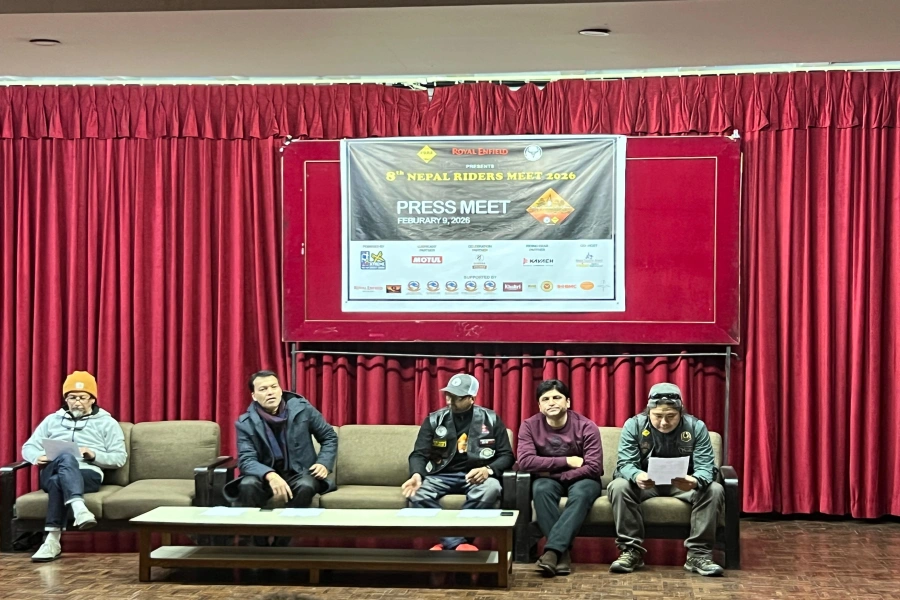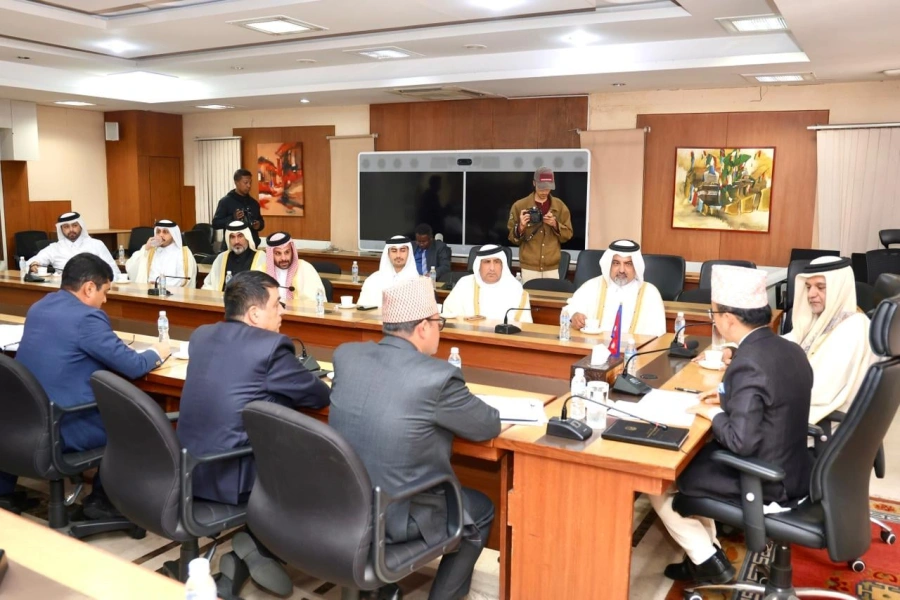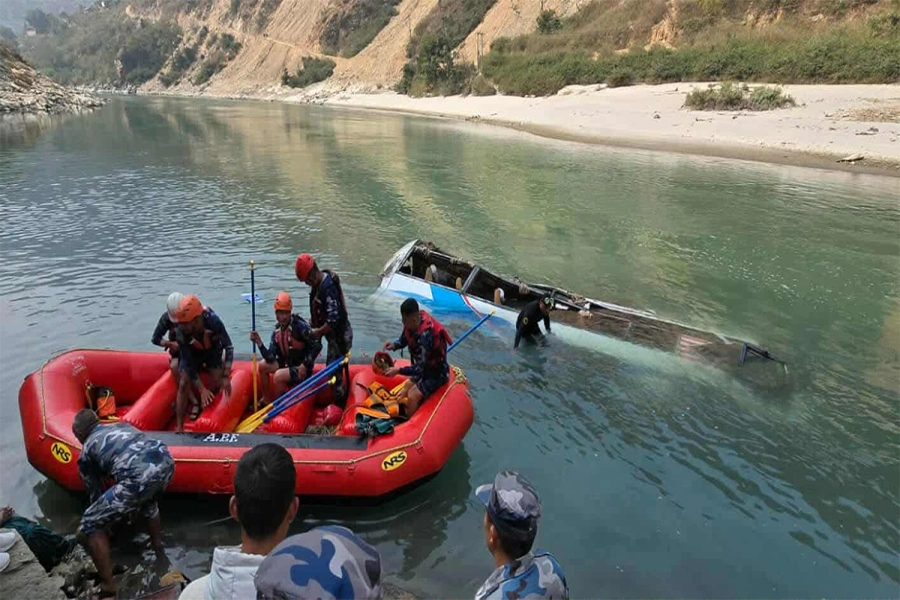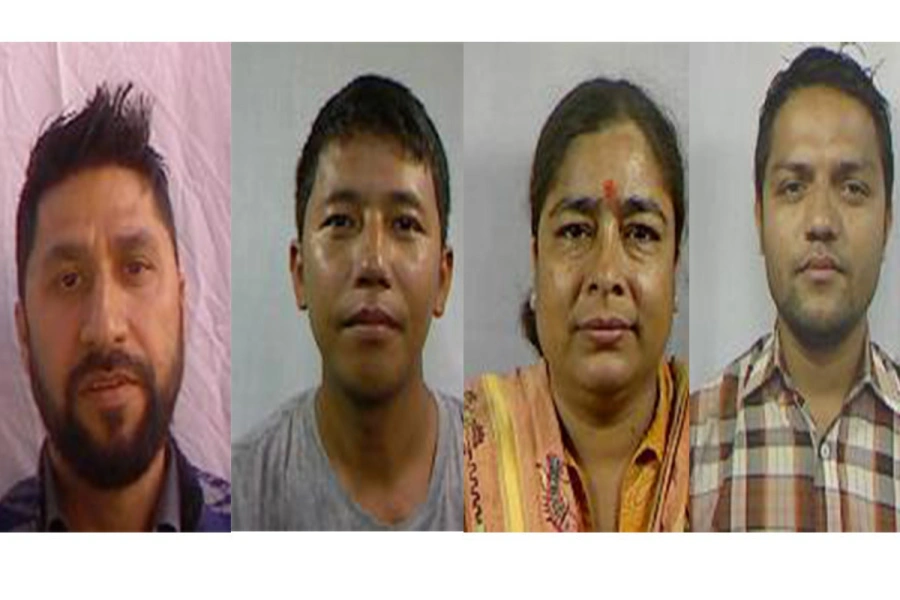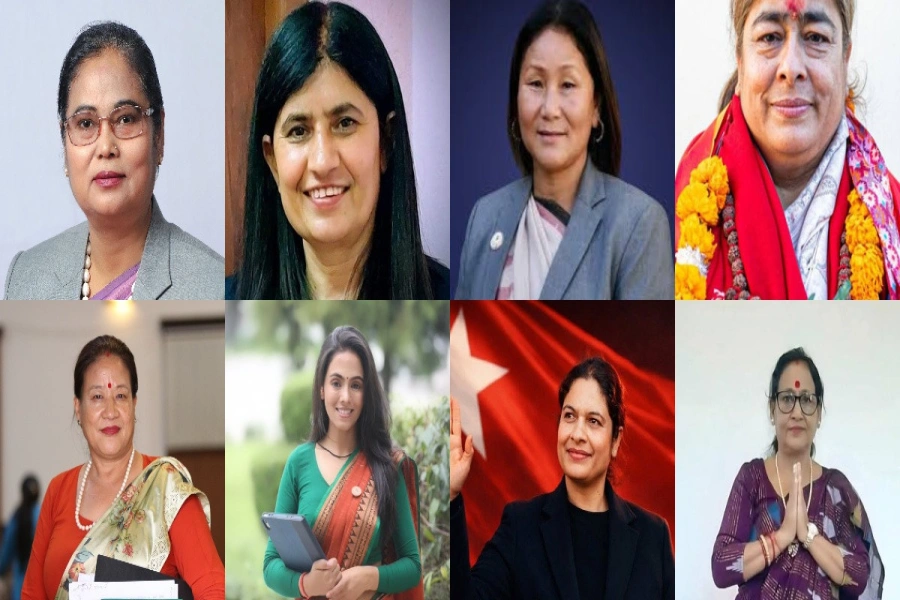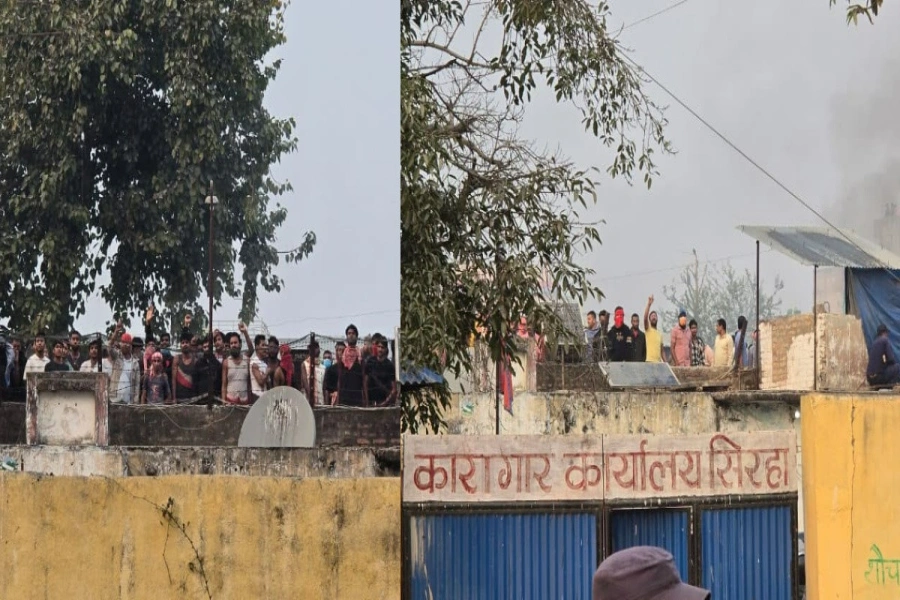KATHMANDU, April 14: Corruption remained big in 2075 BS and anti-corruption agencies took action against some big fish. As action against the corruption accused intensified, more corruption cases involved high-profile politicians, bureaucrats and others in public position have emerged.
In a first of its kind in Nepal, a commissioner of the anti-corruption agency, Commission for Investigation of Abuse of Authority (CIAA), was caught red-handed taking millions as bribe. Then CIAA commissioner Raj Narayan Pathak was arrested on the charge of receiving Rs. 7.8 million from one Lambodar Neupane and was later brought before the Special Court.
Pathak had received the money as bribe from Neupane, chief of the Nepal Engineering College Management Committee, against a promise to favor the latter while deciding a college ownership row. Originally registered as a public entity, Neupane wanted to register the college as a company, thereby making it possible to transform it into private property.
A dispute emerged among the management committee and some disgruntled members approached the authorities concerned, including the CIAA, the most powerful anti-corruption agency.
When the case landed at the CIAA, Pathak, who at the time was overseeing corruption in education , sought a bribe from Neupane . Neupane coughed up Rs. 7.8 million as demanded .
Reforming Anti-Corruption Legislations

But Pathak dillydallied over delivering on the promise. Neuapne then mobilized a team to get Pathak to return the money. They used video recordings that implicated him in corruption. Thus exposed, Pathak was forced to quit his position at the CIAA . The affair highlighted the magnitude of corruption in the upper reaches of the state apparatus.
The anti-corruption agency trained its guns on its own commissioner. After going through the video recordings it implicated its man.
The case is now ongoing at the Special Court and Neupane himself is absconding .
Several other politicians and bureaucrats as well as construction company operators also faced corruption charges in the course of the year just ended. And newer cases have also emerged. While some of them were booked for their involvement in corruption, many got off the hook through their influence in politics, the bureaucracy and even in the anti-corruption agencies themselves.
Former minister Bikram Pandey also faced a corruption case. Pandey, a politician turned contractor, was awarded the contract for the Sikta Irrigation Project, a national pride project. And instead of completing the work properly, he ended up being accused of embezzling Rs. 2.13 billion through shoddy work on the irrigation canal.
Another contractor, Hari Narayan Rauniyar, also faced corruption charges. Rauniyar, who owns the Pappu Construction Company and is known for delays in construction, has been suspended from his parliamentary position.
Then managing director of Nepal Oil Corporation Gopal Khadka faced a charge of amassing more than Rs 180 million during his stay in office. A corruption case was filed against him for alleged involvement in misusing billions while procuring land to build fuel storage facilities in several districts outside Kathmandu Valley. The case is pending at the CIAA.
Another big scam has resulted in Dolendra Sharma, chief of government-owned publishing house Sajha Prakashan, resigning after media reports homed in on him.
Meanwhile, a parliamentary sub-committee has recommended action against tourism ministry officials including sitting and former ministers over their suspected involvement in embezzling Rs. 4.35 billion while procuring two wide-body aircraft for the national airline. But dismayed with the parliamentary sub-committee report, the government formed its own probe panel.
The new probe has been constituted at a time when the CIAA itself is investigating the matter. So far, neither the anti-graft body nor the government probe panel has come up with a report and booking those accused remains a far cry.
Just before the end of 2064 the involvement of high-profile politicians, businessmen and members of constitutional bodies among others were dragged into controversy over the registering of about 114 ropani of government land at Baluwatar as private property through collusion between bureaucrats and politicians.
General Secretary of ruling Nepal Communist Party Bishnu Poudel, Election Commissioner Sudheer Kumar Shah, former ministers Chhabi Raj Panta and Madha Prasad Ghimire, and former CIAA commissioner Deep Basnyat are among those implicated.






